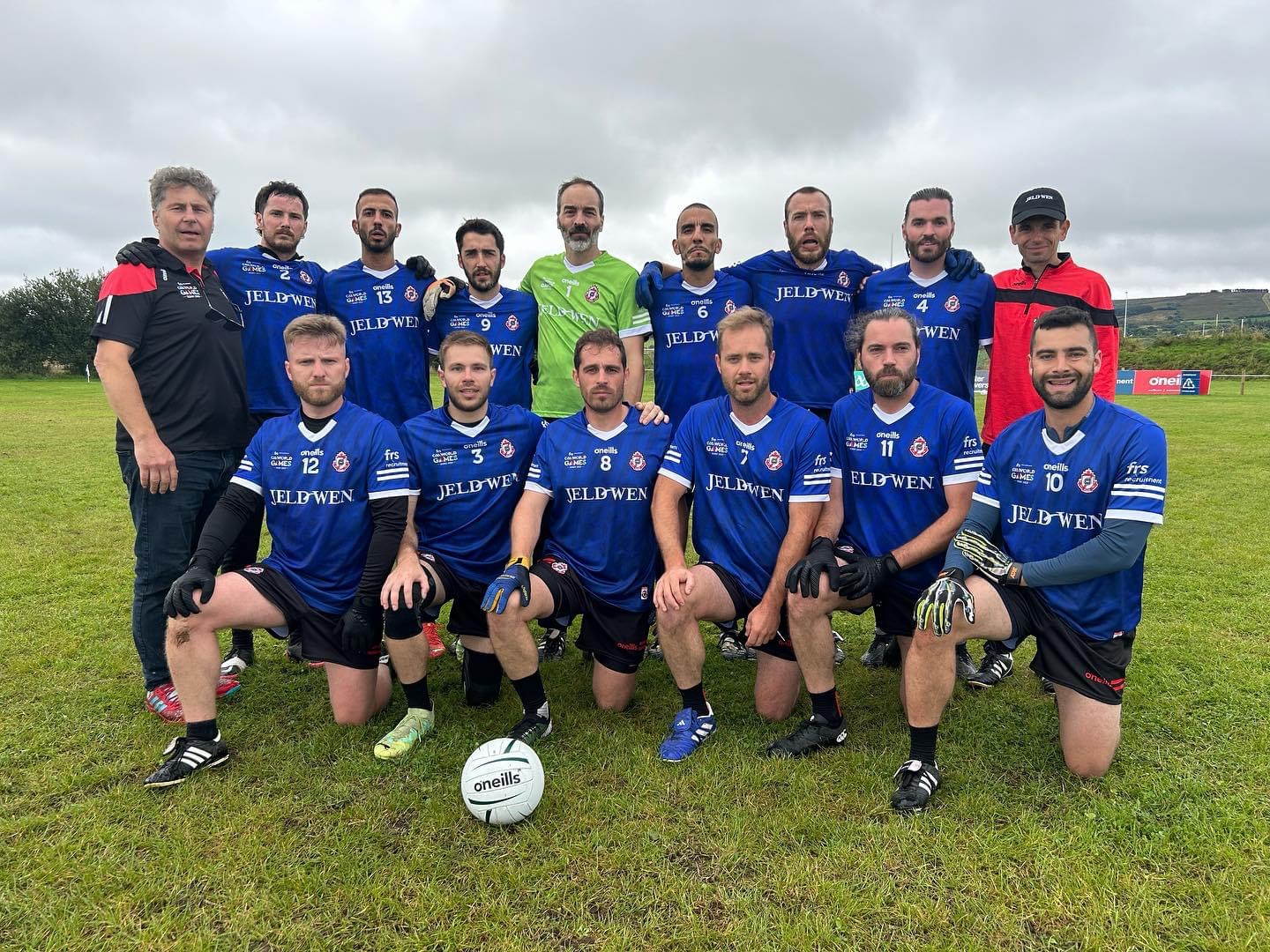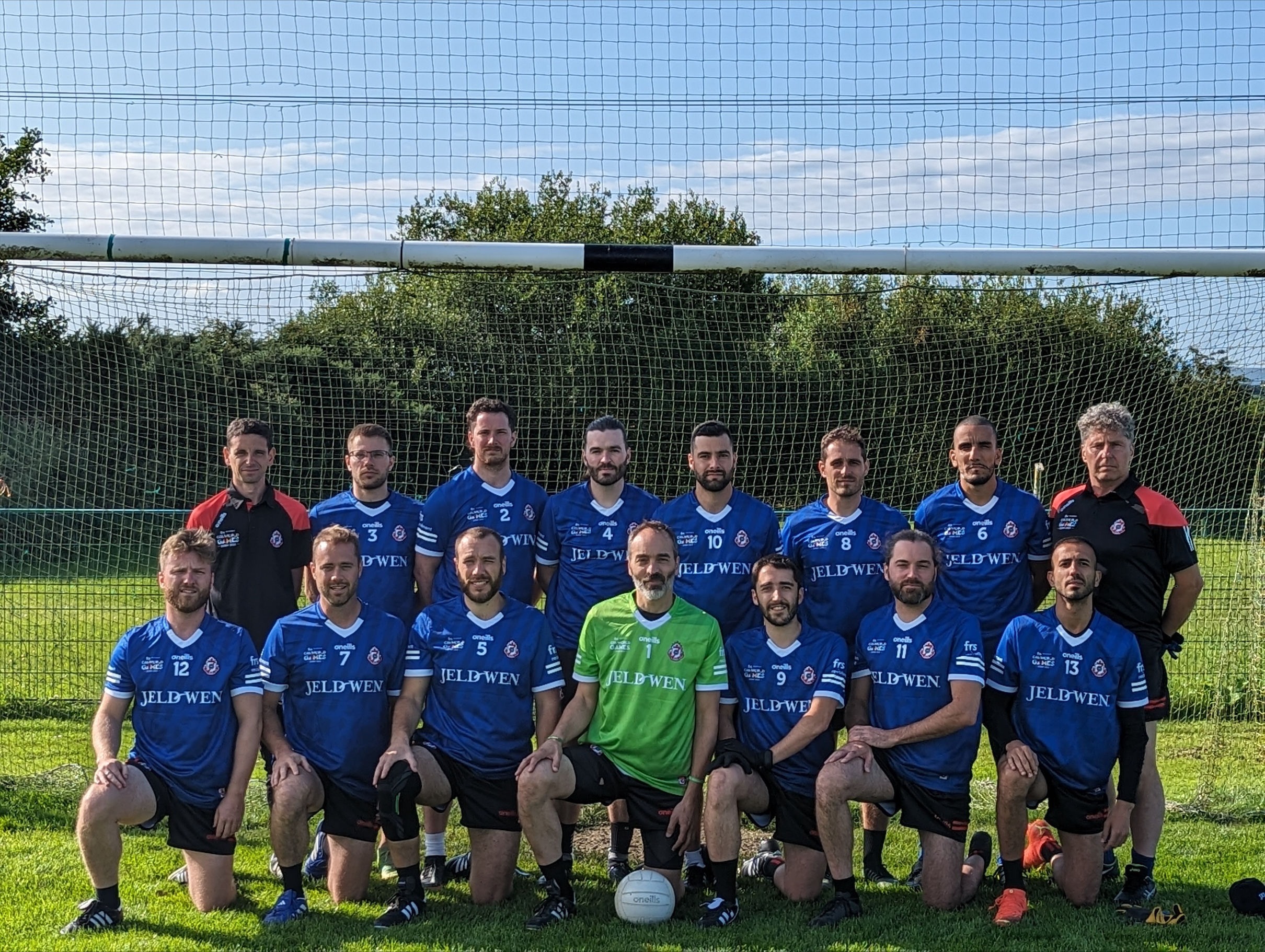One JELD-WEN associate’s passion for Gaelic football led him to play in the World Games.
From a park in Canada to a pitch at the World Games
If baseball is America’s “national pastime,” Gaelic football, also simply called, “Gaelic,” is Ireland’s national obsession.
The sport, which traces its roots back to 1670, is a tremendous point of national pride. It’s not American football, and it’s not soccer or rugby. The ancient sport is unique to the Emerald Isle. Or it was, until it caught on in other parts of the world. Gaelic is booming in Asia, for instance. And its popularity extends to Canada, too.
That’s where JELD-WEN’s Donavan Gilbert, production manager at Saint-Henri, discovered – and got hooked on – the game more than three years ago upon meeting Les Patriotes players at a Quebec City park. It became more than a hobby for the former hockey player. Donavan, who plays full forward, was good enough to play competitively on a world stage.
The Gaelic Athletic Association (GAA), Ireland’s largest sporting organization, hosts the World Games in Ireland every three years. Teams from across the globe travel to Ireland to compete. In 2023, Donavan’s team, Team Quebec, made its debut at the World Games.

It was only a few months prior that the team was formed when Les Patriotes Coach James McDonagh assembled the best players from across the region to form Team Quebec. The players had just three months to become a cohesive unit before their first game against France.
Before the Games, football and JELD-WEN were two important, but separate, parts of Donavan’s life. But the two merged serendipitously when he learned that, thanks to “talent, team spirit, availability and discipline,” he and his teammates were going to Ireland. Donavan told his coworkers, one of whom suggested he ask JELD-WEN about sponsoring the team. He got the green light.

“The Saint-Henri team is proud that we have been able to support both Donavan and Team Quebec,” says Gilles Bouchard, Saint-Henri plant manager. “Donavan brings a commitment to success to his work at JELD-WEN and to Gaelic competition – it has inspired us all!”
“As an employee of JELD-WEN, I am deeply grateful for this opportunity,” Donavan says. “It reinforces my sense of pride in belonging to a company that values not only professional excellence but also active participation in sports and positive initiatives.”
While Donavan is typically a competitive person, he went into the Gaelic Games with the attitude that just being there was special. “Whatever the outcome, the feeling of participating in these Gaelic World Games in Ireland will remain an unforgettable memory,” he says.
DONAVAN GILBERT PRODUCTION MANAGER
More cultural pride than competition
In Gaelic football, two teams – each with 15 players – try to score by kicking or punching a ball either into the other team’s goal or between two posts above the goal and over a crossbar 2.5 meters high.
Players may carry, bounce, kick, pass or solo (dropping the ball and then toe-kicking it upward into the hands) the ball. Teams can score points (for kicking or hand-passing the ball over the crossbar) or goals (for kicking the ball into the net).
Six distinctly Irish sports are part of the Gaelic Games: hurling, handball, rounders, camogie, and men's and ladies’ football. GAA, founded in 1884 to protect Ireland’s culture, champions them all – as well as other cultural traditions such as Irish dance and music.
While Team Quebec didn’t play Ireland, Donavan did meet a few Irish players during the tournament. “Many of them are extremely proud to see their sport gaining popularity on a global scale,” he says. “Many Irish people expected the sport to be enjoyed primarily in Ireland [and they’ve been] surprised to see teams around the world embracing Gaelic football.”
GAA set out to make athletics more accessible to all citizens (they were once the exclusive domain of the aristocracy) and to resurrect and embrace indigenous sports.
For the Irish, Gaelic sports are not just about competition and rivalry. “Gaelic games are more a cultural expression than a sporting activity,” said Cormac Ó Donnchú, co-founder of Experience Gaelic Games in a 2019 story on CultureTrip.com. “They’re a unique expression of our cultural identity.” They’re sports that transcend sports.
According to the GAA, “by far the two biggest days in the GAA calendar are the All-Ireland finals in hurling and football. A sell-out attendance of 82,300 is guaranteed … and the quest for tickets is intense.” For the sake of comparison, Super Bowl LVII, played in February 2023, drew a sell-out crowd of just under 68,000. (Donavan scored two tickets to the 2023 Gaelic football finals a week after the World Games competition.)
7 Pitches - 93 teams - 350+ Games 🤩
— World GAA (@GAAworldgames) July 27, 2023
The FRS Recruitment GAA World Games🌎#FRSGAAWorldGames pic.twitter.com/ukqdf0mOus
Team Quebec had an impressive showing at their first Games. The team notched four wins, two ties and only one loss. Donavan credits their success to the team’s dedication, cohesiveness and hard work.
Could there be another trip to Ireland in the team’s future? “Our commitment to the sport and our desire to succeed remain intact,” Donavan says. “We can’t wait to see what the future holds for us.”
